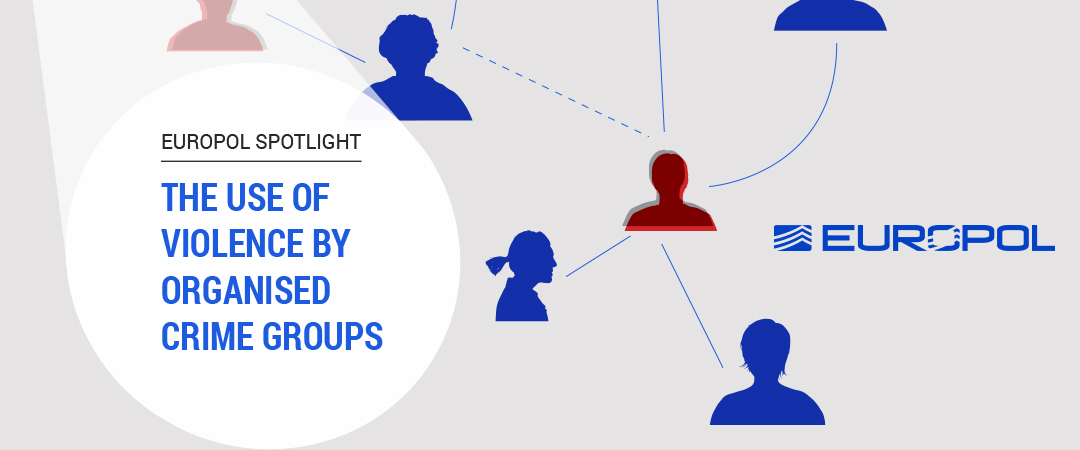
A new report by Europol warns that organised crime groups are increasingly employing violence in pursuit of their criminal objectives, and such violence represents a threat to public security in the EU. Based on an analysis of contributions made by Member States to Europol in recent years, there has been a rise in the number of violent incidents associated with serious and organised crime. Furthermore, the analysis points to an increasing willingness from criminal groups to resort to lethal violence.
In this report, Europol highlights the factors underpinning this trend and the challenges it poses to law enforcement and develops a set of recommendations.
Underlying factors of violence and risks to the public
The involvement in criminal gangs of younger and inexperienced hitmen and the accessibility of firearms and explosives, together with violent incidents often perpetrated in crowded public places and broad daylight are considerable threats to public security.
Large ports in the EU exploited by criminal groups as transit points and the streets of the surrounding cities are particularly vulnerable to violence. International organised crime groups have established footholds in and around these ports, where the corruption and intimidation of workers critical to the unloading and storage of illicit commodities, and the competition for distribution are taking place.
The rise in violence in illicit markets can be tied to growing competition among criminal networks. Most drug-related fatal and serious violence have been reported in cocaine and cannabis markets, which have recently attracted new players.
The report also points to an increased use of serious violence by organised crime groups to carry out their criminal activities. These violent crimes do not exclusively affect criminals; they target non-criminals including victims of trafficking in human beings, violent robberies, law enforcement officers, lawyers, witnesses and informants, investigative journalists, or uncooperative dock workers.
Jari Liukku, Head of Europol’s European Serious Organised Crime Centre said
While organised crime groups have always been associated with violence, Europol is observing a spike in serious violent acts. This trend is unlikely to decrease in the short term as violence will thrive from organised crime opening to diversity and competition, becoming more digitalised and expanding its global reach. The cooperation at regional and international level is of utmost importance to tackle this threat posed by organised crime.
Law enforcement challenges and Europol’s recommendations
Law enforcement is facing a range of challenges in dealing with organised crime including:
- techniques, tactics and procedures used by organised crime groups members lead investigations to dead-ends;
- the increased mobility of criminals as well as the support networks at local level and the means available to perpetrate attacks (firearms/explosives, surveillance equipment for target reconnaissance, etc.) complicate reactive investigations;
- hitmen often remain undetected, as they are not a part of the criminal groups;
- a homicide seen as an isolated event has no clear cross-border dimension, and countries do not consistently share information with international partners and Europol.
The analysis conducted by Europol has drawn up a set of recommendations to support law enforcement authorities in countering organised crime:
- proactively anticipate trends and shifts in criminal markets and network structures;
- adopt a comprehensive step-by-step approach which would include detection and deterrence (including by attacking criminal finances at an earlier stage);
- focus on the processes and resources by which crimes are committed in order to identify choke points for intervention;
- continue to promote cooperation at regional and international levels.
Europol spotlight report: The Use of Violence by Organised Crime Groups
Headquartered in The Hague, the Netherlands, Europol supports the 27 EU Member States in their fight against terrorism, cybercrime and other serious and organised forms of crime. We also work with many non-EU partner states and international organisations. From its various threat assessments to its intelligence-gathering and operational activities, Europol has the tools and resources it needs to do its part in making Europe safer. In 2019, Europol supported 1 874 international operations.